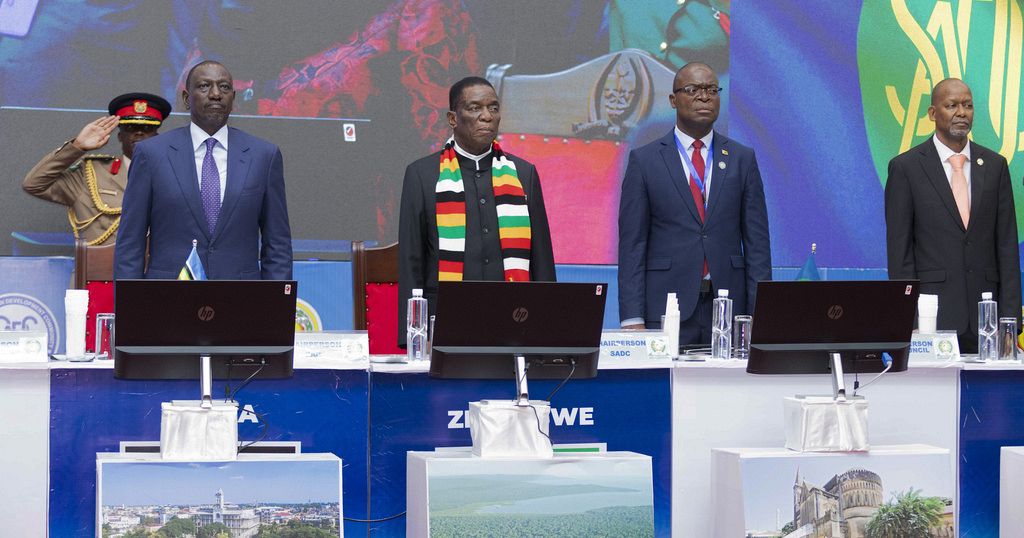African leaders have launched a unified continental strategy to address the protracted conflict in eastern Democratic Republic of Congo (DRC), streamlining previously fragmented peace initiatives under the African Union (AU). Kenyan President William Ruto and Zimbabwean President Emmerson Mnangagwa, co-chairs of a joint summit involving the East African Community (EAC) and the Southern African Development Community (SADC), announced the consolidated approach following a high-level meeting with AU representatives on Friday. The resolution merges mediation efforts and administrative structures of the EAC, SADC, and AU into a single framework headquartered in Addis Ababa.
President Ruto described the decision as a critical shift in regional diplomacy. “This marks a turning point — one African-led process now unites initiatives from Nairobi, Luanda, and elsewhere into a coherent strategy,” he said, emphasizing the “dire” humanitarian and security conditions in eastern DRC. The crisis, fueled by ethnic divisions and competition over mineral-rich territory, has displaced over 7 million people and claimed thousands of lives this year alone. Ruto warned the instability risks spillover effects across Central and Southern Africa, impacting neighboring nations like Rwanda.
The consolidation follows months of sporadic diplomatic progress. In July, the M23 rebel group — the conflict’s most prominent armed faction, with reported links to Rwanda — agreed to a permanent ceasefire brokered by Qatar. The AU hailed the deal as a “major milestone,” while a separate U.S.-mediated agreement between Congolese and Rwandan officials in Washington, D.C., was praised by Secretary of State Marco Rubio as a potential end to “30 years of war.” Despite these efforts, clashes have persisted, underscoring the complexity of resolving a crisis interwoven with geopolitical tensions and resource exploitation.
The AU-led initiative aims to harmonize competing regional agendas and reduce duplication. Analysts suggest centralizing oversight could improve coordination among peacekeeping missions, disarmament programs, and humanitarian aid delivery. However, challenges remain, including enforcing compliance from rebel groups and addressing longstanding grievances between DRC and Rwanda, which have long accused each other of supporting rival militias.
The humanitarian toll continues to escalate, with international agencies reporting severe food shortages, widespread displacement, and recurrent violence against civilians. The M23’s territorial advances earlier this year exacerbated the crisis, drawing renewed global attention to a conflict often overshadowed by other crises. As African leaders push for a continent-owned resolution, the success of this unified approach will depend on sustained political will and cross-border collaboration to tackle the roots of one of Africa’s most intractable wars.
